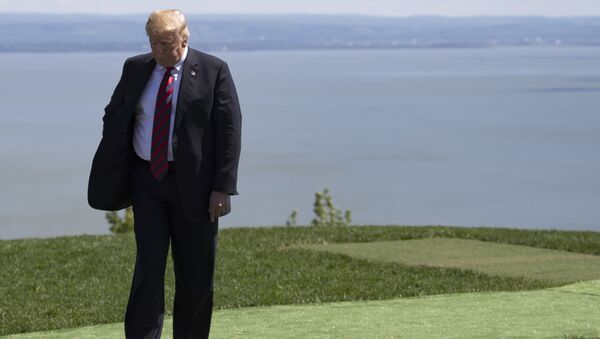Sputnik spoke to Dr. Stavros D. Mavroudeas, a professor of political economy at the University of Macedonia, to discuss the implications.
Sputnik: Do you expect the other G7 members to have much luck persuading President Trump to give in and grant them waivers from the steel and aluminum tariffs that seem to be bedeviling these old alliances?
Stavros Mavroudeas: I think that the Trump administration is making a strategic change in the policy of the US. It expresses the deep vested interests of the US elite [during] a period of economic crisis and geopolitical upheavals. The US wants to use its superpower status to achieve as much benefits as it can, so it will pressurize everybody else to succumb to US interests.
Sputnik: Do you think, as some are suggesting, that we are witnessing the emergence of a post-US world order? Macron himself said just yesterday that the US is no longer the sole economic superpower and alluded to the possibility of the US being sidelined at the G7.
Stavros Mavroudeas: There is such a possibility, although France, and Macron especially, is just a joker. Macron especially is not significant. He tries… to court Germany… but he has no significant leverage. But for the US there is a growing danger that it might lose its superpower status and for this reason the Trump administration is moving so as to avoid this development.
Sputnik: Russian President Vladimir Putin said on Thursday that he had "warned" Europe years ago about the risk of Washington imposing trade rules on others. Do you think it’s possible that Europe could gravitate toward Russia, in the long run?
The views and opinions expressed in this article are solely those of the speaker and do not necessarily reflect those of Sputnik.



